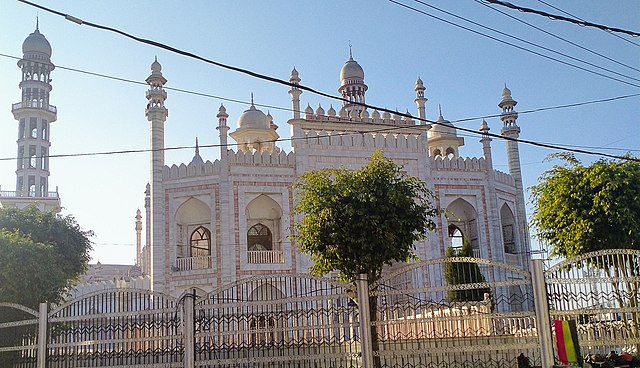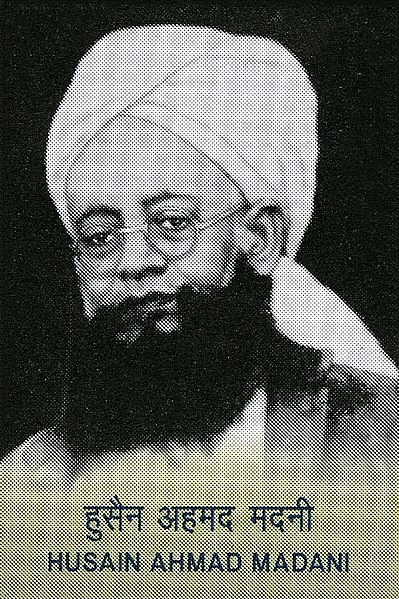The Darul Uloom Deoband is an Islamic seminary in India at which the Sunni Deobandi Islamic movement began. Uttar Pradesh-based Darul Uloom is one of the most important Islamic seminaries in India and the largest in the world. It is located in Deoband, a town in Saharanpur district, Uttar Pradesh. The seminary was established by Muhammad Qasim Nanautavi, Fazlur Rahman Usmani, Sayyid Muhammad Abid and others in 1866. Mahmud Deobandi was the first teacher and Mahmud Hasan Deobandi was the first student.
Darul Uloom Deoband.
Masjid-e-Rasheed in the seminary.
The Deobandi movement or Deobandism is a revivalist movement within Sunni Islam that adheres to the Hanafi school of law. It formed in the late 19th century around the Darul Uloom Madrassa in Deoband, India, from which the name derives, by Muhammad Qasim Nanautavi, Rashid Ahmad Gangohi, and several others, after the Indian Rebellion of 1857–58. They opposed influence of non-Muslim cultures on the Muslim of South Asia. The movement pioneered education in religious sciences through the Dars-i-Nizami associated with the Lucknow-based ulama of Firangi Mahal with the goal of preserving traditional Islamic teachings from the influx of modernist, secular ideas during British colonial rule. The Deobandi movement's Indian clerical wing, Jamiat Ulema-e-Hind, was founded in 1919 and played a major role in the Indian independence movement through its participation in the Pan-Islamist Khilafat movement and propagation of the doctrine of composite nationalism.
Image: Darul Uloom Deoband
Image: Mahmud Hasan Deobandi (cropped)
Image: Hussain Ahmad Madani (cropped)
Image: Sabbir Ahmad Usmani (cropped)





